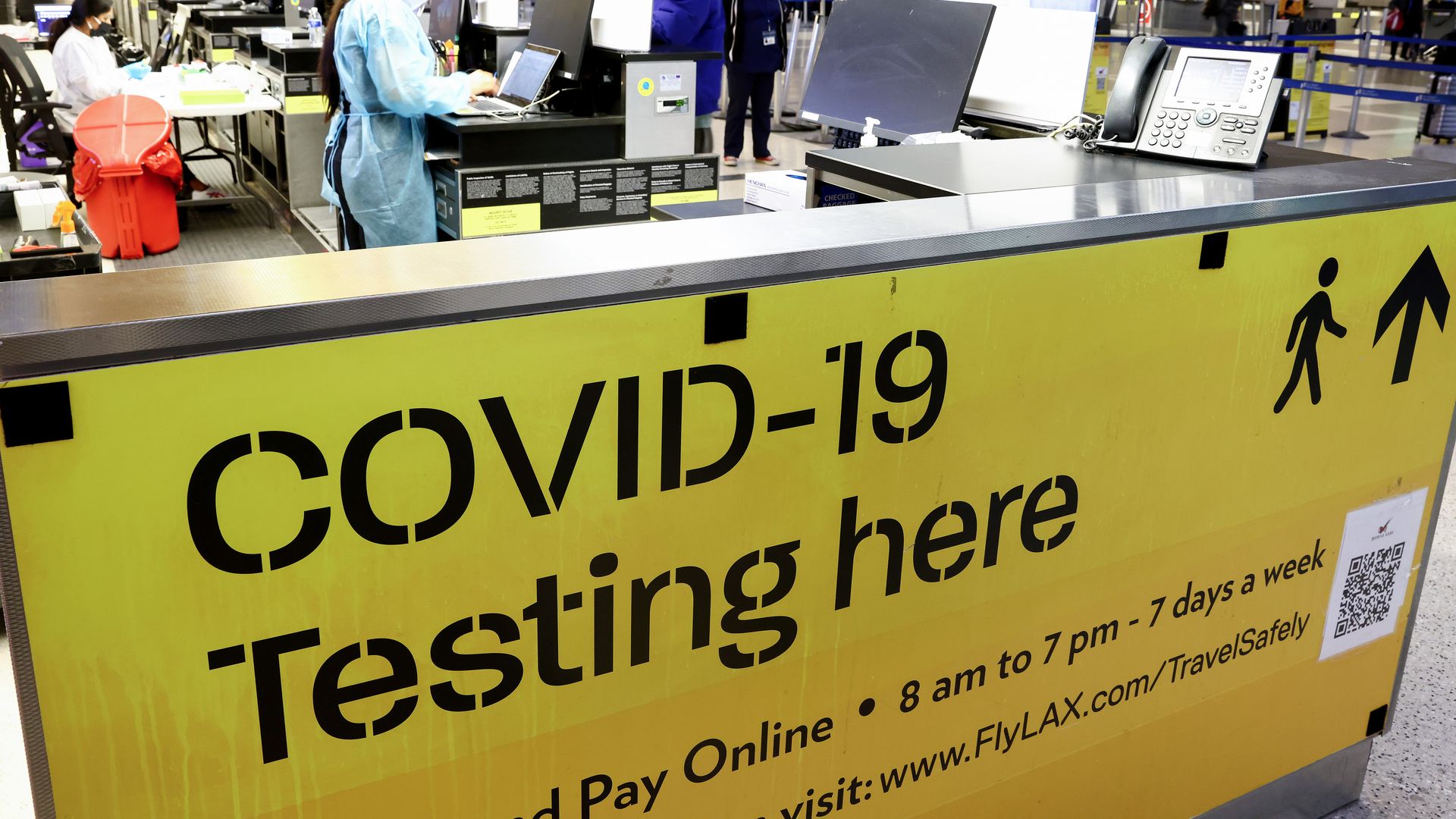WHO: Delta health measures help fight Omicron
Add Axios as your preferred source to
see more of our stories on Google.

Photo: Mario Tama/Getty Images
Health measures taken to combat COVID-19 before the emergence of Omicron would also help against the new variant of concern, World Health Organization officials said Friday.
What they're saying: Takeshi Kasai, WHO regional director for the Western Pacific, said during a virtual briefing broadcast from Manila, Philippines, that border controls imposed by the U.S. and other nations can "buy time" to deal with the variant, but warned "every country and every community must prepare for new surges in cases."
- "The positive news in all this is that none of the information we have currently about Omicron suggests we need to change the direction of our response," Kasai added.
- "Our experience of the last two years, especially in dealing with variants like Delta, provides a guide about what to do now, as well as how to cope with future surges in a more sustainable way."
The big picture: Since Omicron was first detected in South Africa last month, the new variant has been reported in at least five U.S. states and two dozen countries — including the Netherlands, where scientists found a case of the variant that predates the South African discovery.
- WHO regional emergency director Babatunde Olowokure noted that established measures including COVID-19 vaccinations, mask wearing and social distancing all help.
- "Our experience of the last two years, especially in dealing with variants like Delta, provides a guide about what to do now, as well as how to cope with future surges in a more sustainable way," Olowokure said.
The bottom line: Kasai said it's "clear that this pandemic is far from over."
- "I know that people are worried about Omicron," he added. "But my message today is that we can adapt the way we manage this virus to better cope with the future surges and reduce their health, social and economic impacts."
"What is most important is to prepare for these variants with potential high transmissibility. So far, the information available suggests we don't have to change our approach."— Takeshi Kasai
Go deeper: Parsing what we do and don’t know about Omicron
Editor's note: This article has been updated with more of Takeshi Kasai's comments from the briefing.
